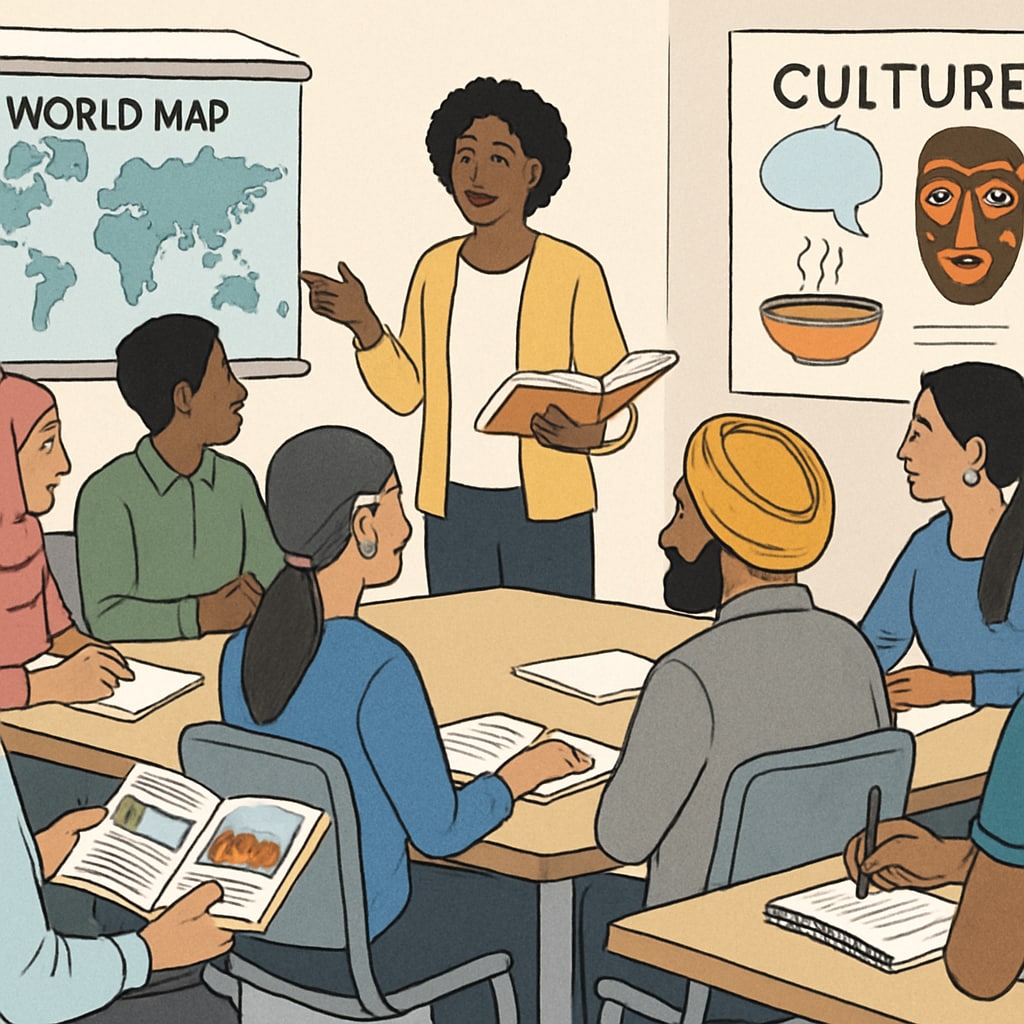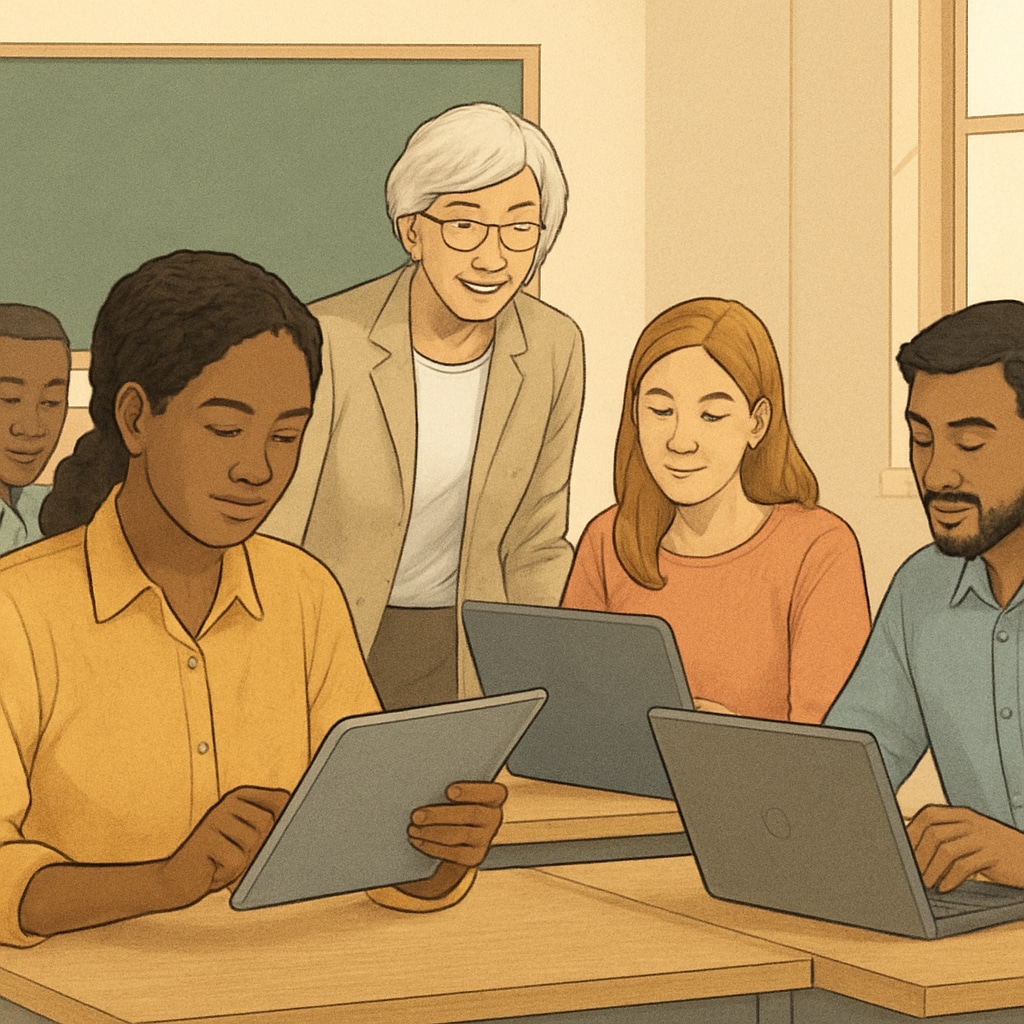Adult education, cultural adaptation, and fundamental knowledge are critical for immigrants striving to integrate into Western societies. Many adult immigrants face challenges when transitioning into a new culture, often due to gaps in foundational knowledge about the local language, history, social norms, and systems. This article delves into why adult education is essential for cultural adaptation and offers practical strategies for creating programs that address these needs.
The Importance of Foundational Knowledge for Cultural Integration
Adapting to a new cultural environment requires more than just learning the local language; it involves understanding the societal framework and the unspoken rules that govern daily life. For example, an immigrant moving to a Western country may need to grasp the basics of civic systems, healthcare processes, and even workplace etiquette to feel fully integrated. Without this knowledge, they may struggle to navigate essential tasks such as opening a bank account or understanding school systems for their children.
Moreover, cultural adaptation is not just about surviving; it’s about thriving. Programs that build foundational knowledge empower immigrants to participate actively in their communities, fostering a sense of belonging and confidence. According to a Britannica article on culture, understanding cultural norms helps individuals align their behaviors and expectations with those of the society they live in.

Challenges Faced by Adult Immigrants in Learning
Adult immigrants encounter unique challenges that can hinder their learning process. These include:
- Language Barriers: Limited proficiency in the local language often makes it difficult to access resources or participate in community programs.
- Time Constraints: Many adults juggle work, family responsibilities, and education, leaving limited time for formal learning.
- Cultural Differences: Misunderstanding cultural norms can lead to feelings of isolation or exclusion.
- Lack of Accessible Programs: Not all communities offer affordable or accessible adult education tailored to immigrants.
Addressing these barriers requires a thoughtful approach to program design, ensuring that resources are inclusive, flexible, and relevant to the specific needs of immigrants.
Strategies for Building Comprehensive Adult Education Programs
To create effective adult education programs that support cultural adaptation, educators and policymakers can adopt the following strategies:
1. Prioritize Language and Communication Skills
Language is the foundation of cultural adaptation. Programs should focus on teaching practical language skills tailored to everyday situations, such as shopping, job interviews, or medical appointments. Incorporating role-play activities and interactive sessions can enhance engagement and retention.
2. Include Cultural Orientation Workshops
Cultural orientation workshops can cover topics such as local laws, holidays, and social norms. These sessions help immigrants understand and appreciate the cultural nuances of their new environment. For example, a workshop might explain the concept of individualism in Western societies, helping immigrants navigate interpersonal relationships more effectively.
3. Leverage Technology for Flexible Learning
Online platforms and mobile apps can make education more accessible for busy adults. Tools like Duolingo for language learning or Coursera for foundational courses enable immigrants to learn at their own pace. According to Wikipedia’s entry on education technology, digital resources can bridge gaps in traditional education systems and expand access to underserved populations.
4. Foster Community Support Networks
Learning in isolation can be daunting, so creating community-based programs where immigrants can connect with peers is essential. Peer support encourages collaboration, reduces feelings of isolation, and builds a support system that extends beyond the classroom.

The Role of Governments and Communities
Governments and local organizations play a pivotal role in supporting adult education for cultural adaptation. Funding initiatives, subsidizing educational programs, and collaborating with community leaders can ensure that resources reach those who need them most. For instance, public libraries often serve as hubs for free language classes and cultural workshops, making them invaluable community assets.
Additionally, partnerships with employers can facilitate workplace training programs, equipping immigrants with the skills needed to succeed in their professional lives. By investing in these initiatives, societies not only support newcomers but also strengthen their own communities by fostering diversity and inclusion.
Conclusion
Adult education, cultural adaptation, and fundamental knowledge are inseparable components of successful immigrant integration into Western societies. By addressing knowledge gaps, overcoming barriers, and creating inclusive programs, educators and policymakers can empower immigrants to thrive in their new environments. In doing so, we build bridges across cultures, fostering understanding and unity in an increasingly interconnected world.
Readability guidance: This article uses concise paragraphs and clear headings to enhance readability. Lists summarize key points, while overuse of passive voice and long sentences is avoided. Transition words like “however,” “for example,” and “in addition” ensure smooth flow between ideas.


